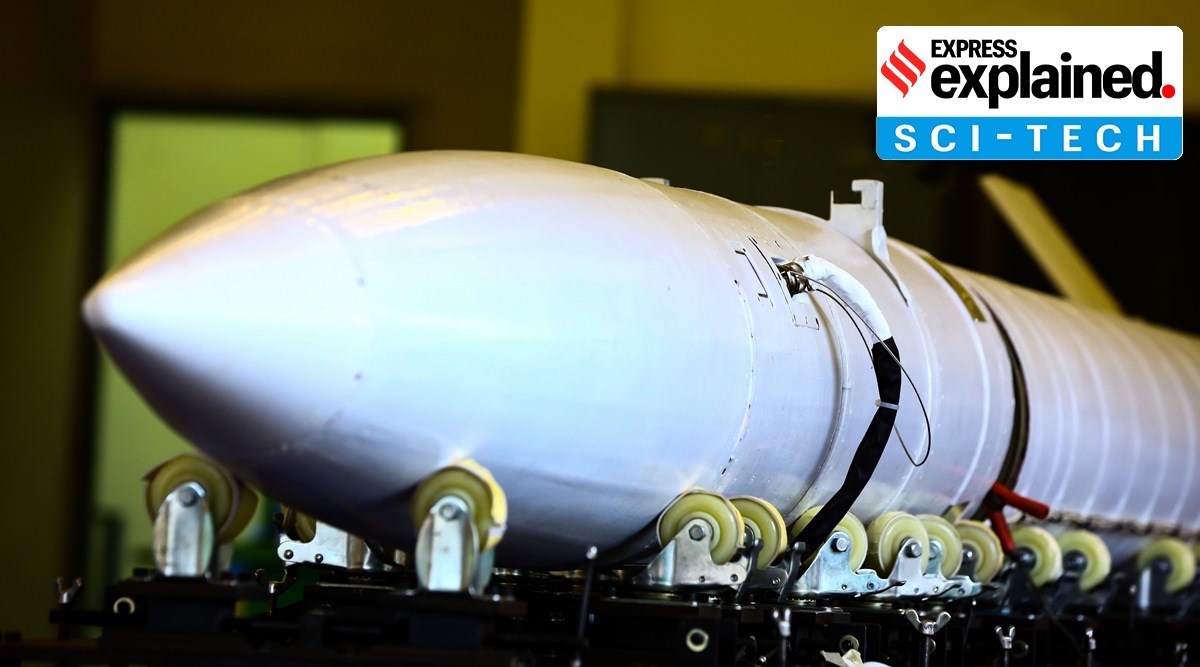Mission Prarambh: What to watch in flight of Vikram-S, India’s first private sector rocket
ISRO Vikram S Rocket: Mission Prarambh, or 'the beginning', will mark the Indian private sector's first foray into the promising space launch market. The liftoff is scheduled for 11.30 am IST.

India’s first privately developed launch vehicle, Vikram-S, blasted off on its maiden flight from the Indian Space Research Organisation’s (ISRO’s) Sriharikota spaceport on Friday (November 18). The mission, named Prarambh, or ‘the beginning’, marks the Indian private sector’s first foray into the promising space launch market. The liftoff was at 11.30 am IST.
Mission Prarambh, Vikram S Rocket: In the names of Sarabhai and Kalam
The rocket has been developed by Hyderabad-based Skyroot Aerospace, a company that was started in 2018. It is called Vikram-S. It is named after Vikram Sarabhai, the founder of India’s space programme.
“The Vikram-S rocket is a single-stage sub-orbital launch vehicle which will carry three customer payloads and help test and validate technologies in the Vikram series space launch vehicles,” said Naga Bharath Daka, COO and co-founder of the company.
The company is designing three Vikram rockets that will use various solid and cryogenic fuels. The Vikram series of rockets are among the few launch vehicles that have their core structure built using carbon composites. The thrusters used for spin stability in the vehicle have been 3D printed.
The engine used in the launch vehicle is named after former president Dr A P J Abdul Kalam. The performance of the ‘Kalam-80’ will be one of the key areas that the company will monitor during the flight of Vikram-S.
A suborbital first flight to test systems
Mission Prarambh will see Vikram-S carry three customer satellites in a sub-orbital flight. In a sub-orbital flight, the vehicle travels slower than the orbital velocity — which means it is fast enough to reach outer space, but not fast enough to stay in an orbit around the Earth. Tycoons Jeff Bezos and Richard Branson have undertaken sub-orbital flights to the edge of space.
Friday’s flight will take less than five minutes. Vikram-S is a single stage solid fuel rocket meant to test nearly 80 per cent of all systems and processes before the launch of Vikram-1 scheduled for next year. Vikram-1 will be a much larger vehicle that will undertake orbital flights.
“Rockets are very complex vehicles, and like every complex technology, it can also go wrong, based on various reasons. But we have backed our build with the best of technology and skills, and so we believe that the launch will be a success, and that Vikram-S will chart new history for Indian private space sector,” Skyroot said in an email.
On board, a satellite built by school kids
Vikram-S will carry three satellites, including one by SpaceKidz India called FunSat, parts of which were developed by school students. The Vikram rockets will be able to carry between 290 kg and 560 kg payloads into sun-synchronous polar orbits.
In comparison, India’s workhorse PSLV can carry up to 1,750 kg to such an orbit. The newly-developed Small Satellite Launch Vehicle (SSLV), meant for carrying smaller commercial satellites, can carry up to 300 kg to sun-synchronous orbit.
More coming from private sector
Although Skyroot is the first private company to launch its rocket, others are not far behind.
Agnikul Cosmos, whose semi-cryogenic Agnilet engine was test- fired for 15 seconds this week at ISRO’s vertical testing facility at Thumba Equatorial Rocket Launching Station (TERLS), Thiruvananthapuram.
And ISRO’s Small Satellite Launch Vehicles (SSLV) are also likely to be manufactured and operated by private players soon.
Regarding the entry of private players in the space sector in India, ISRO chairperson S Somanath said on Thursday that around 100 start-ups have registered with the space agency and are working closely with it in “various domains of the space sector”.
Speaking at the Bengaluru Tech Summit 2022, he said that a significant number of companies have the potential to become big players in the space sector and that ISRO is playing the role of facilitator for them and helping them in building technologies.